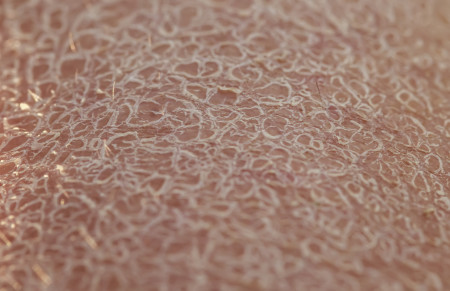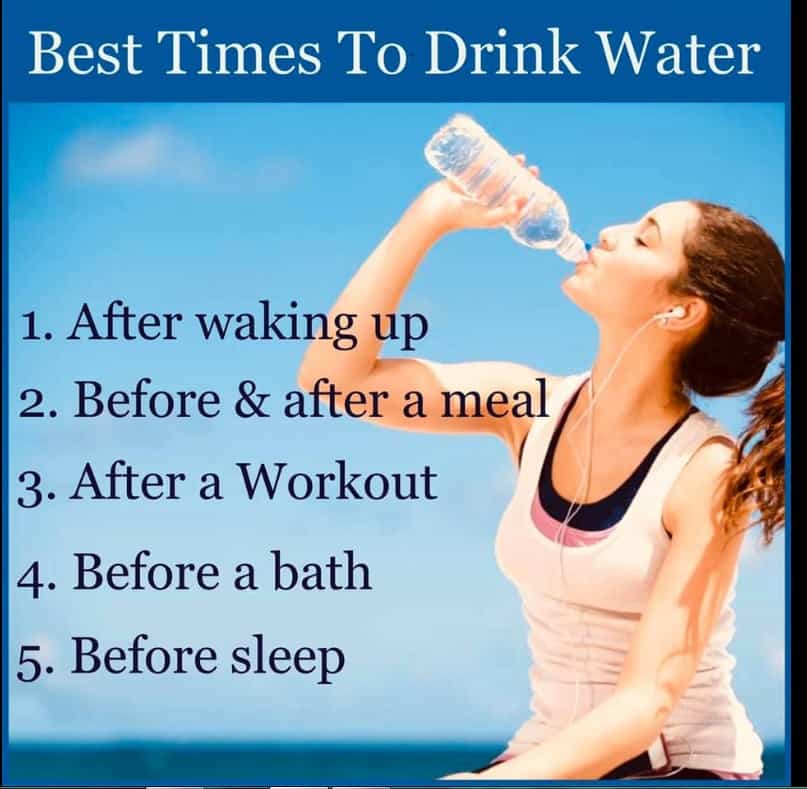Hydration and the Significance of Water
Water is a principal part of life, and keeping up with legitimate hydration is fundamental for human wellbeing and prosperity. However it frequently slips through the cracks, water assumes a basic part in each physiological capability of the human body. From directing internal heat level to flushing out poisons, the significance of water couldn't possibly be more significant. Hydration, or the most common way of keeping a fitting degree of liquid in the body, is fundamental for the appropriate working of cells, tissues, and organs. Without sufficient hydration, both physical and mental execution can decline, prompting a large group of unexpected problems.
In this article, we will investigate the physiological jobs of water, the signs and results of drying out, the elements impacting hydration needs, and down to earth procedures for keeping up with ideal hydration levels. Understanding the significance of hydration is critical to keeping up with great wellbeing and forestalling different ailments.
Physiological Jobs of Water in the Human Body
Water makes up roughly 60% of the grown-up human body, and its presence is basic for a great many physical processes. Each cell, tissue, and organ in the body expects water to proficiently play out its obligations. Coming up next are a portion of the significant jobs water plays in keeping up with generally speaking wellbeing:
1. Regulation of Body Temperature
Water is essential to the body's capacity to control temperature. During proactive tasks or openness to hot conditions, the body produces heat, which is disseminated through the vanishing of sweat. Sweat, which comprises predominantly of water, is delivered by sweat organs and delivered onto the skin's surface. As the water in sweat dissipates, it chills the body off, forestalling overheating. Without adequate hydration, the body's capacity to create sweat is compromised, expanding the gamble of intensity related ailments like intensity weariness or intensity stroke.
2. Lubrication of Joints and Tissues
Water goes about as an oil for the body, working with smooth developments and safeguarding tissues. It is a significant part of synovial liquid, which greases up and pads joints, taking into consideration torment free development. Likewise, water helps keep mucous layers, like those in the eyes, nose, and mouth, clammy and working appropriately. Legitimate hydration additionally guarantees that tissues like the skin stay versatile and tough, decreasing the gamble of harm from active work or natural variables.
3. Support of Metabolic Processes
Water is fundamental for the compound responses that happen in the body's cells. Numerous metabolic cycles, including the breakdown of food into supplements, rely upon water. For example, water is associated with hydrolysis responses, where it helps separate carbs, proteins, and fats into more modest atoms that can be consumed by the body. Moreover, water is fundamental for moving supplements, oxygen, and side-effects to and from cells.
4. Detoxification and Waste Elimination
The kidneys, which are liable for sifting blood and eliminating byproducts, depend intensely on water to appropriately work. Water assists break up with squandering items like urea and uric corrosive, making it simpler for the kidneys to discharge them through pee. Sufficient hydration guarantees that the kidneys can proficiently eliminate poisons from the body, forestalling the development of destructive substances. Moreover, water works with solid discharges, decreasing the gamble of blockage by keeping stool delicate and simple to pass.
5. Maintenance of Blood Volume and Circulation
Water is a significant part of blood, which is around 90% water. Keeping up with sufficient blood volume is basic for guaranteeing appropriate course and conveying oxygen and supplements to cells. At the point when the body is dried out, blood volume diminishes, prompting a drop in pulse and decreased oxygen conveyance to tissues. This can bring about dazedness, weakness, and disabled mental capability. Serious parchedness could in fact prompt hypovolemic shock, a hazardous condition in which the body can't keep up with adequate blood stream to fundamental organs.
Signs and Outcomes of Drying out
Parchedness happens when the body loses more water than it takes in, bringing about a lack that can adversely affect different physical processes. Indeed, even gentle lack of hydration can prompt recognizable side effects, while extreme parchedness can be dangerous whenever left untreated. Understanding the indications of parchedness is fundamental for forestalling its adverse consequences.
1. Early Indications of Dehydration
Thirst: One of the earliest and most clear indications of drying out is a sensation of thirst. Thirst is the body's approach to flagging that it needs more liquid to keep up with balance. Notwithstanding, it's critical to take note of that when you feel parched, you may as of now be somewhat got dried out.
Dry Mouth and Skin: An absence of adequate water can prompt a dry mouth, dried out lips, and dry skin. Lacking hydration lessens how much spit delivered, which can make gulping and talking awkward.
Dull Urine: The shade of pee is a valuable sign of hydration status. At the point when the body is sufficiently hydrated, pee is regularly light yellow or clear. Dim yellow or golden shaded pee is an indication that the body is saving water, demonstrating drying out.
2. Symptoms of Moderate to Serious Dehydration
Fatigue: Lack of hydration can prompt a decrease in blood volume, making the heart work harder to siphon blood all through the body. This can bring about sensations of weariness, shortcoming, and diminished actual perseverance.
Headaches: Lack of hydration can make cerebral pains due the diminished blood stream to the mind and the contracting of cerebrum tissues as they lose water. These migraines are frequently joined by sensations of dazedness or tipsiness.
Debilitated Mental Function: Lack of hydration can fundamentally affect mental execution. It can prompt hardships with fixation, memory, and direction. In extreme cases, lack of hydration can create turmoil, ridiculousness, and even obviousness.
Diminished Pee Output: As the body endeavors to ration water, pee yield diminishes, and the recurrence of pee turns out to be less continuous. This is an indication that the body is attempting to hold however much liquid as could be expected.
Quick Pulse and Breathing: Extreme lack of hydration can prompt an expanded pulse and fast, shallow breathing as the body attempts to make up for decreased blood volume and dissemination.
3. Complications of Extreme Dehydration
Extreme parchedness can have serious, hazardous results in the event that not tended to quickly. These include:
Kidney Failure: Without enough water to channel byproducts, the kidneys can become harmed, prompting kidney disappointment.
Heat-Related Illnesses: Lacking hydration expands the gamble of intensity weariness and intensity stroke, especially during actual work or openness to high temperatures.
Seizures: Extreme parchedness can prompt electrolyte irregular characteristics, especially a diminishing in sodium levels (hyponatremia). This can cause muscle fits, seizures, and in outrageous cases, unconsciousness.
Hypovolemic Shock: This is a condition where the body loses a lot of liquid, prompting a drop in pulse and a failure to keep up with satisfactory flow. It very well may be lethal in the event that not treated right away.
Factors Impacting Hydration Needs
How much water a singular requirements can differ in light of various elements, including age, movement level, natural circumstances, and generally speaking wellbeing. Understanding these variables can assist people with fitting their hydration systems to meet their exceptional necessities.
1. Age
As individuals age, their feeling of thirst turns out to be less intense, and their body's capacity to moderate water diminishes. This makes more established grown-ups more helpless to parchedness. Old people actually must give close consideration to their liquid admission, regardless of whether they feel parched.
2. Physical Activity
Active work expands the body's interest for water, as muscles produce heat during activity and liquid is lost through sweat. Competitors or people taking part in exhausting exercises ought to expand their water admission to make up for these misfortunes.
3. Environmental Conditions
Hot, damp conditions increment the body's requirement for water, as more liquid is lost through sweat. Cold conditions can likewise increment water needs, as the body loses dampness through breath in chilly air.
4. Health Status
Certain ailments, like diabetes, kidney infection, and gastrointestinal issues, can influence the body's hydration needs. Prescriptions like diuretics additionally increment water misfortune, making it significant for people with these circumstances to intently screen their hydration.
5. Diet
Dietary decisions can impact hydration. Food sources with high water content, like products of the soil, add to generally hydration, while pungent or sweet food sources can expand the body's requirement for water.
Useful Procedures for Keeping up with Hydration
Keeping up with legitimate hydration is an everyday exertion that expects consideration regarding liquid admission and acknowledgment of the body's necessities. The accompanying techniques can assist people with remaining hydrated:
1 Water Regularly. Drink
The least difficult and best method for remaining hydrated is to hydrate over the course of the day, regardless of whether you're not feeling especially parched. Conveying a water bottle and tasting routinely can assist with guaranteeing reliable hydration.
2. Monitor Pee Color
As referenced before, pee tone is a solid sign of hydration status. Watching out for the shade of your pee can assist you with deciding if you're drinking sufficient water.






0 Comments